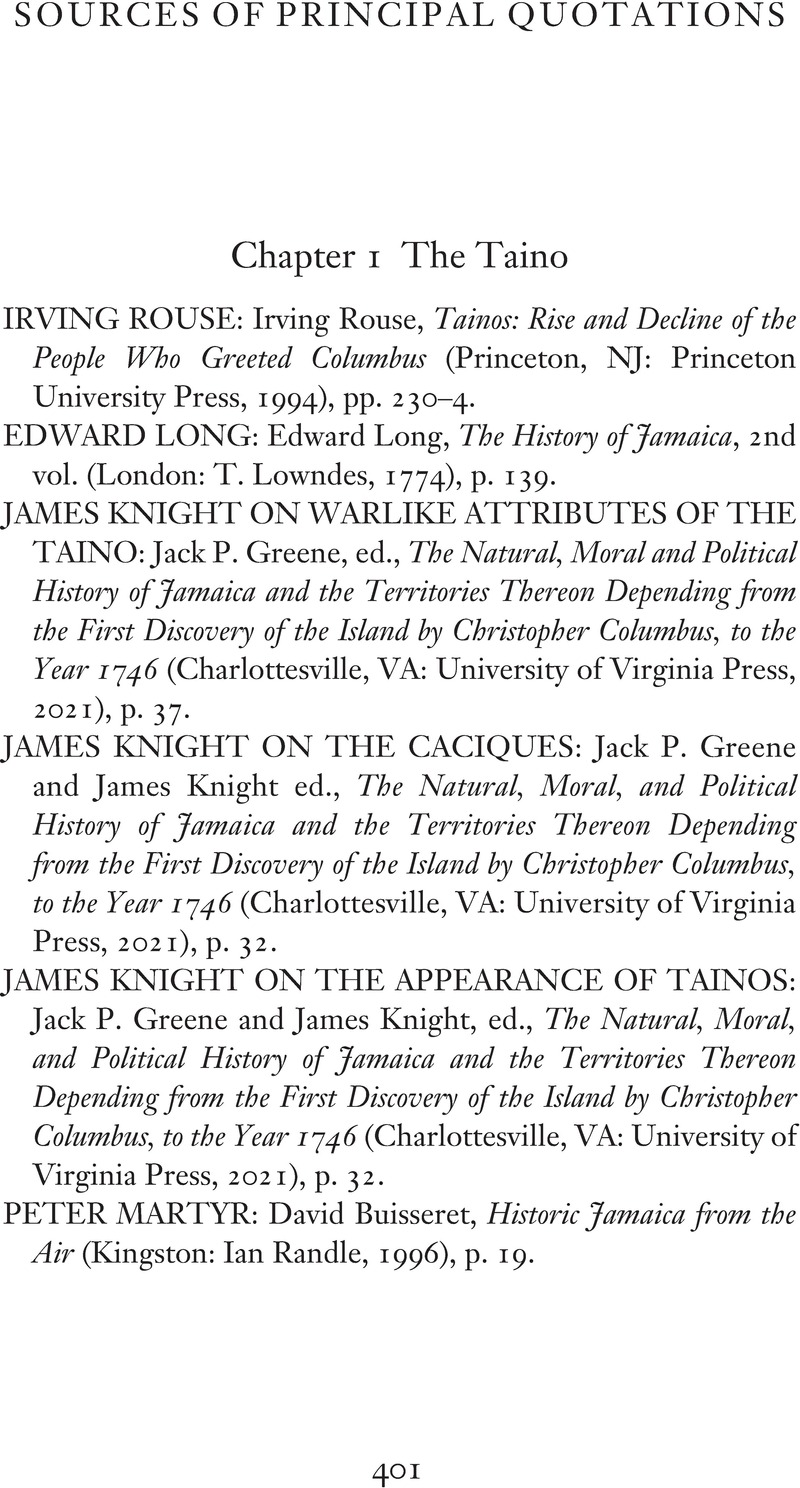Book contents
- A Concise History of Jamaica
- Cambridge Concise Histories
- A Concise History of Jamaica
- Copyright page
- Dedication
- Contents
- Figures
- Acknowledgements
- Introduction
- 1 The Taino
- 2 Spanish Jamaica, 1509–1655
- 3 Creating an English Jamaica, 1655–1775
- 4 From Slavery to Freedom, 1775–1865
- 5 The Shadow of Colonialism, 1865–1945
- 6 Modern Jamaica, 1945–2022
- Conclusion
- Sources of Principal Quotations
- Select Bibliography
- Index
- References
Sources of Principal Quotations
Published online by Cambridge University Press: 23 November 2023
- A Concise History of Jamaica
- Cambridge Concise Histories
- A Concise History of Jamaica
- Copyright page
- Dedication
- Contents
- Figures
- Acknowledgements
- Introduction
- 1 The Taino
- 2 Spanish Jamaica, 1509–1655
- 3 Creating an English Jamaica, 1655–1775
- 4 From Slavery to Freedom, 1775–1865
- 5 The Shadow of Colonialism, 1865–1945
- 6 Modern Jamaica, 1945–2022
- Conclusion
- Sources of Principal Quotations
- Select Bibliography
- Index
- References
Summary

- Type
- Chapter
- Information
- A Concise History of Jamaica , pp. 401 - 422Publisher: Cambridge University PressPrint publication year: 2023

